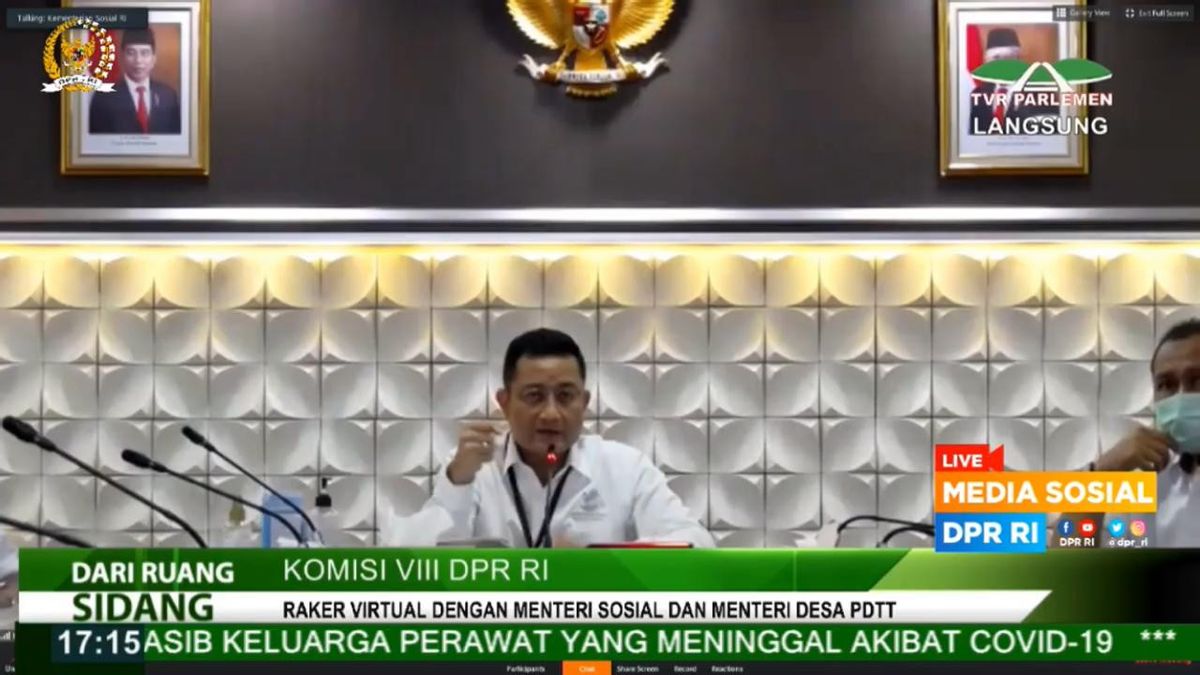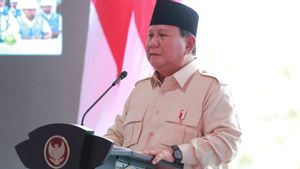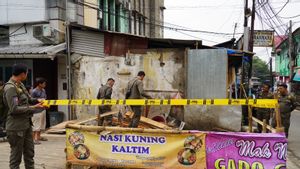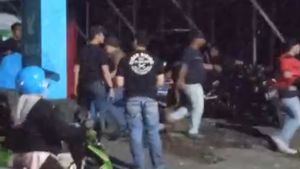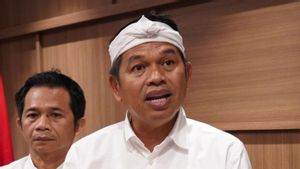JAKARTA - The Ministry of Social Affairs is in the public spotlight in the midst of the corona virus pandemic or COVID-19. This is because there are many complaints from people who have not been touched by social assistance (bansos). In fact, the budget for social safety net or social safety net issued by the State Budget is IDR 110 trillion.
Social Minister Juliari Batubara said, under abnormal conditions like today, the government must move quickly to meet the needs of the community. However, he admitted, the data collection of potential beneficiaries was not yet fully on target.
"I even said, I prefer (social assistance to go down) quickly now than right. Why? If it is not right, it can be resolved and I can prove it myself. Instead of being busy verifying, re-validating data to ensure that the target of COVID-19 has been completed, the new social assistance down, "he said, in a working meeting with Commission VIII together with the Minister of Pembangungan Village for Disadvantaged Regions and Transmigration virtually, Wednesday, May 6.
According to Juliari, when conditions are like this, the government, in this case the Ministry of Social Affairs, must choose one. So, the decision to be taken is to distribute social assistance quickly, so that the community can be immediately helped.
"Neither can be both very fast and very precise. I think it is impossible. We are not a country that has sophisticated data infrastructure," he said.

Social Minister Juliari Batubara is providing assistance to people in need amidst the difficulties caused by the COVID-19 pandemic. (Photo by: Ministry of Social Affairs)
Juliari said, the Ministry of Social Affairs received full data from the social service. According to him, there is no other data source used by the Ministry of Social Affairs in determining the recipients of social assistance.
"The Ministry of Social Affairs will accept it and will not check again. Why? Because we do not have time. This is only three months of this program. If our time is only spent checking in the field, the COVID is over, the assistance has not arrived," he said.
According to Juliari, choosing a fast step by not checking only the data provided by the social services is still considered by the community to be slow in distributing aid.
"This alone has been said to be slow, especially if we have to re-verify, re-validation really later the social assistance will go down after the COVID-19 is over," he explained.
Abundance of Social Assistance
Minister of Social Affairs Juliari said that the types of social assistance (bansos) for the community are currently quite abundant. Many people get help from various sources. However, this actually disrupted the process of distributing cash assistance provided by the central government.
"The assistance is a lot so it is below, I will call it a tsunami of social assistance,"
Minister of Social Juliari
Juliari said that this condition made data collection for direct cash assistance (BLT) neglected. This is because the focus of the data collection officers in the regions is divided. As a result, this BLT was not accepted by the people in need.
Apart from the Ministry of Social Affairs, the community also gets assistance from the Ministry of Villages, Development of Disadvantaged Areas, and Transmigration (Kemendes PDTT). Then, every provincial and district / city government also does the same thing to help the community.
"This is because social assistance is currently decreasing almost simultaneously so that the officials below may experience difficulties in collecting data," he said.
In addition, Juliari explained that the distribution target for BLT specifically for the Jabodetabek area is nine million households (KK). Cash social assistance will be distributed in three stages, namely April, May and June. Each household received a grant of Rp. 600 thousand.
Juliari said that the realization of the first phase of BLT distribution as of May 3 was 785,370 families. With details, as many as 784,660 families received through Bank Himbara and 36,710 families received through PT Pos Indonesia. Total funds that have been disbursed amounted to Rp.471.2 billion.
Meanwhile, he continued, the second phase of distribution was carried out on May 5 with the target of receiving aid as many as 1,831,118 families. The third stage on 7 May for 2,600,740 households. Thus the total stages one to three became 5,277,513 households that received BLT.
The English, Chinese, Japanese, Arabic, and French versions are automatically generated by the AI. So there may still be inaccuracies in translating, please always see Indonesian as our main language. (system supported by DigitalSiber.id)
